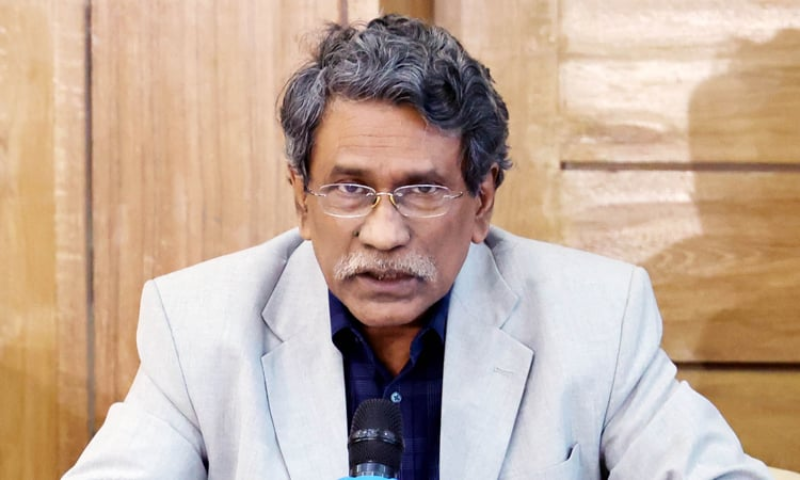- WHO Calls for Immediate Rollout of HIV Prevention Jab |
- Rooppur NPP’s Digital Operator Asst in Russia starts trial |
- Israeli strikes kill 43, including children, in Gaza |
- WFP Deputy Chief Warns of Deepening Crisis in Gaza |
- UN Warns Gaza Fuel Crisis Threatens Humanitarian Collapse |
Emergency Powers to Require Cabinet Approval: Ali Riaz

National Consensus Commission Vice-Chairman Professor Ali Riaz spoke at the Foreign Service Academy in the capital today.
National Consensus Commission Vice-Chairman Professor Ali Riaz announced that political parties have reached a consensus on revising Article 141(a) of the Constitution to ensure greater checks and balances in declaring a state of emergency.
Speaking to the media after the twelfth day of the second round of talks at the Doel Hall of the Foreign Service Academy, Riaz said the proposed amendment would replace the term “internal disturbance” with clearer and more specific threats such as “national independence, sovereignty, territorial integrity, pandemics, or natural disasters.”
A key change in the proposal would require that the declaration of a state of emergency be approved by the Cabinet, rather than just needing the Prime Minister’s countersignature. Furthermore, the leader of the opposition—or the deputy leader, if the former is unavailable—must be present at the Cabinet meeting convened to approve such a declaration.
The proposal also includes a provision that, even during a state of emergency, the right to life and protection from arbitrary trial and punishment under Article 35 of the Constitution must be upheld, subject to Article 47A.
At a prior discussion on 7 July, all political parties and alliances agreed on amending Article 141(a) to prevent the misuse of emergency powers for political purposes.
Commission members including Justice Md. Emdadul Haque, Dr. Iftekharuzzaman, Dr. Badiul Alam Majumdar, Safar Raj Hossain, Dr. Md. Ayub Miah, and Special Assistant to the Chief Adviser Monir Haider were also present during the session.
Ali Riaz further shared that consensus had also been reached on amending Article 95 of the Constitution to clarify the procedure for appointing the Chief Justice. The proposed amendment mandates that the President appoint the most senior judge of the Appellate Division as Chief Justice.
However, if a political party or alliance clearly states in its election manifesto and secures public mandate, the President may choose from the two most senior judges.
To uphold judicial integrity, the proposal states that any judge under investigation for misconduct or incapacity under Article 96 will be ineligible for appointment as Chief Justice.
Representatives from 30 political parties participated in the discussion, including the Bangladesh Nationalist Party (BNP), Bangladesh Jamaat-e-Islami, National Citizen Party (NCP), Gono Odhikar Parishad, Gonosanghati Andolon, Communist Party of Bangladesh (CPB), Biplobi Workers Party, and Amar Bangladesh (AB) Party.

